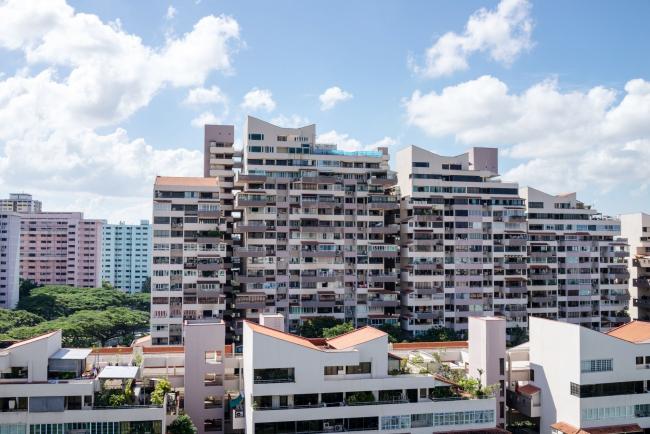(Bloomberg) -- Singapore has a property glut that could take years to clear, threatening to kill a nascent price recovery amid an already uncertain economic outlook.
The city-state had an overhang of 31,948 units as of Sept. 30, according to the Urban Redevelopment Authority. Sales have averaged about 2,500 homes per quarter this year, and at that rate it will take almost four years to clear the backlog, according to Christine Li, head of research for Singapore and Southeast Asia at Cushman & Wakefield Plc.
The glut has prompted developers to call for property curbs to be eased, including lowering the 20% stamp duty for foreign buyers and getting more time to sell apartments before being hit with punitive levies. The over-supply also threatens to push down prices, the central bank warned last month.
Read more: Singapore Property Glut May Curb Prices, Central Bank Says
And given the unsure economic outlook, sales might fall between 5% and 10% next year, said Christine Sun, head of research at OrangeTee & Tie Pte. Property prices could still rise, albeit at a slower pace of 1% to 3% “assuming the economy doesn’t deteriorate excessively next year.”
The overhang is evident at The Florence Residences in suburban Hougang, about a half hour subway ride from the popular Orchard Road shopping district. Just 38% of the 1,410 units at the development, which boasts a sparring ring, outdoor cinema, 80-meter lap pool and rock-climbing wall, have sold since being launched in March.
Fierce Competition
Competition in the area is fierce. Three other mega-projects within a 20-minute drive have a combined stock of 3,137 units. All up, just 57% of apartments at the four projects have sold.
The glut is more pronounced in outlying suburban areas versus areas closer to downtown, where easy access to top schools, shopping streets and the central business district are drawcards. As of the third quarter, there were 8,917 unsold units in prime districts, compared to 10,538 in suburban areas.
The roots of the current glut, which includes finished apartments and those still under construction, can be traced back to the property boom of 2017-18 and the en-bloc fever that enveloped the city. In an en-bloc sale, a group of owners team up to sell entire apartment blocks to a developer, which then redevelops the site.
“Excessive exuberance” in buying en-bloc sites caused the over-supply, Cushman & Wakefield’s Li said. And it would be “unwise” for the government to bail out developers by easing cooling measures, she said. Instead, stricter limits should be imposed on en-bloc sales to prevent a repeat of the buying frenzy.
“If this precedent of a bail-out is set, developers will not exercise restraint in acquiring en-bloc sites in future cycles, flooding the market with supply and relying on the government to rescue them again,” Li said.
What Bloomberg Opinion says:
If the city hadn’t punctured the en-bloc mania in time, home prices would by now have started to run away. Affordability would have become an issue, especially at a time when, caught in the crossfire of the U.S.-China trade war, Singapore residents have seen their incomes rise much more slowly.
--Andy Mukherjee, columnist
For the article, click here
While residential property prices declined after the government imposed a fresh round of curbs in July 2018, they’ve recently started to creep up again, gaining 1.3% last quarter.
“If the economy stays lackluster or weakens further and drags down market sentiment, price growth could falter,” said Tay Huey Ying, head of research and consultancy at Jones Lang LaSalle Inc.’s Singapore office.
As well as winding back hefty stamp duties for foreign buyers and residents buying multiple properties, developers would like to see further concessions, including getting more time to sell projects.
To stop land hoarding, developers have five years from the time of purchase to build and sell all units at a site, or risk being hit with a 25% levy.
“That’s a lot of stress for developers,” said Chia Ngiang Hong, president of the Real Estate Developers’ Association of Singapore. He would prefer the deadline be extended to seven years for mega-projects of more than 1,000 apartments.
“Five years is too harsh,” he said.
The government isn’t budging. Leaders have repeatedly signaled the curbs won’t be eased anytime soon as they seek to avoid a repeat of the 2010-2013 property boom, when annual house-price growth peaked at 15%.
“It’s prudent of Singapore’s government to monitor the domestic residential property market closely for signs of over- or under-heating and calibrate the measures as appropriate to ensure a stable and sustainable market,” said JLL’s Tay.
